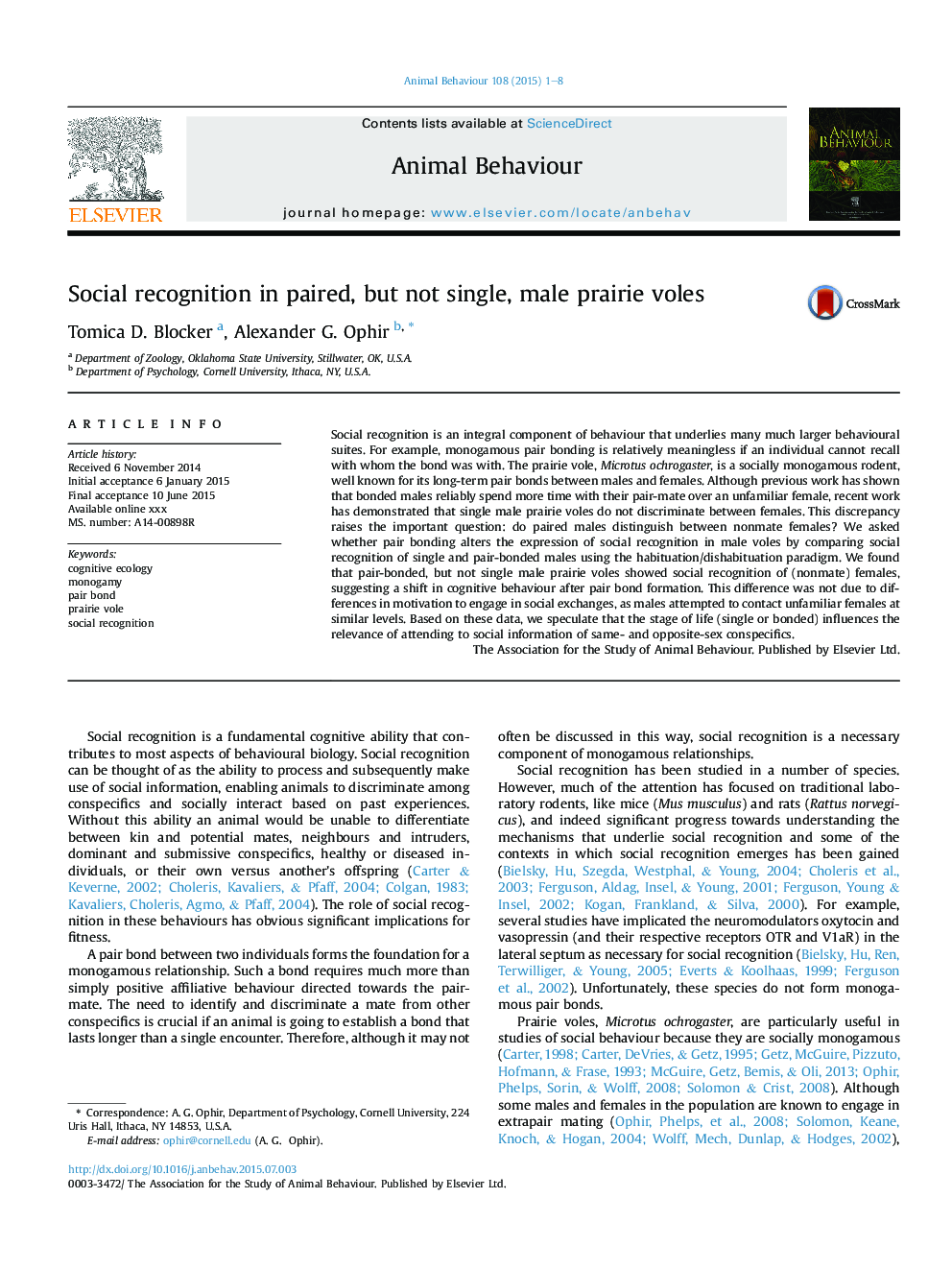| Article ID | Journal | Published Year | Pages | File Type |
|---|---|---|---|---|
| 8489609 | Animal Behaviour | 2015 | 8 Pages |
Abstract
Social recognition is an integral component of behaviour that underlies many much larger behavioural suites. For example, monogamous pair bonding is relatively meaningless if an individual cannot recall with whom the bond was with. The prairie vole, Microtus ochrogaster, is a socially monogamous rodent, well known for its long-term pair bonds between males and females. Although previous work has shown that bonded males reliably spend more time with their pair-mate over an unfamiliar female, recent work has demonstrated that single male prairie voles do not discriminate between females. This discrepancy raises the important question: do paired males distinguish between nonmate females? We asked whether pair bonding alters the expression of social recognition in male voles by comparing social recognition of single and pair-bonded males using the habituation/dishabituation paradigm. We found that pair-bonded, but not single male prairie voles showed social recognition of (nonmate) females, suggesting a shift in cognitive behaviour after pair bond formation. This difference was not due to differences in motivation to engage in social exchanges, as males attempted to contact unfamiliar females at similar levels. Based on these data, we speculate that the stage of life (single or bonded) influences the relevance of attending to social information of same- and opposite-sex conspecifics.
Related Topics
Life Sciences
Agricultural and Biological Sciences
Animal Science and Zoology
Authors
Tomica D. Blocker, Alexander G. Ophir,
